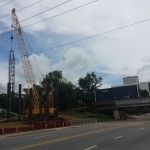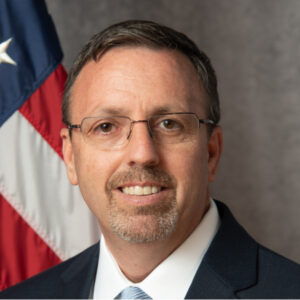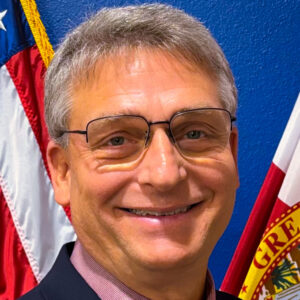Human curiosity is one manifestation of the Divine Spark within us that moves us to imagine what has not yet been realized. Faith, in like manner, moves us forward through trials and errors to the point of further discovery. As birds sing, and dogs bark, we are made to dream of what could be.
Heros are often celebrated in literature, film, and national holidays. The hero’s fame is proportional to the number of people who benefit. We erect statues and name airports, roads, bridges, and buildings accordingly if warranted. Then, there are those who persist in the face of formidable circumstances to bring about good for others without much recognition. They inspire us with their persistence and remind us of the things in life that matter most.
Tallahassee in 2023
Brien R. Sörne
January 15, 2024
Much of who we are is expressed in our language, our music, and our art. True for us as individuals, and among us as a community. In our pursuit to better know ourselves, our discoveries of those who have come before us help us better understand who we are, what we are worth, and why we are here.
2023 has left an indelible mark in the minds of our local residents, public officials, college football fans, and business owners. Bewildering decisions regarding the allocation of public money, increasing housing costs, and the exclusion of FSU football from the national playoff will be long remembered.
Meanwhile, the advancement of economic opportunities and assistance programs along with Tallahassee’s changing demography in which 7 out of 8 residents are not native to Tallahassee has opened up expanded discussions about what we want to achieve in 2024.
College Sports Playbook
Brien R. Sörne
December 9, 2023
Show business. My son is in show business. One of the most highly acclaimed young artists in the country. Songwriter, multi-album producer, award-winning visual artist, and live performer who has toured nationally several times and in Europe. And yet, even though he has nearly 200,000 followers around the world none of that matters to a producer who is looking to sell tickets and thinks he has a shot at booking someone with an even greater draw.
We are entitled to be disappointed and infuriated. No doubt. And yet, we are dealing with the money…and that is driven by ad sales revenue for these networks which is then passed along to universities. That’s it.
This committee extended that philosophy and that reality in their decision-making. Stephen A Smith said it precisely (https://youtu.be/czAA3Svrt_4?si=XBWZm6uUdS5F7fcP). We don’t have to like it, but it’s the world we live in where the question is “Which matchups will create the most sizzle, the biggest splash, and bigger audiences? And here we’re not talking about either/or. Figuratively speaking, it’s about “20 million viewers versus 21 million viewers”. And those numbers equal dollar signs.
Whether we think they were right or wrong, that is their rationale and that is what they consider “best” for their interests, and the interests of those they serve, and not “the best teams”.For his part, my son is quite happy and quite successful playing for smaller audiences who love his work and appreciate his unique talents.
The rules that govern the value assessment of college athletics have changed. More clearly, they have been changing for quite some time. Like all social change, that process can come in the form of gradual, seemingly unrelated adjustments in policy and procedures. Or, to the dismay of those who never saw it coming, it may come suddenly in the form of a revolutionary overthrow of the past in favor of a new paradigm.
At a time when Florida State University football athletes, fans, and officials are outraged over the exclusion of FSU football from the 2023 college football national playoffs, their claims reveal how disconnected is their rationale from the facts. They are in possession of an outdated playbook that says “The team that achieves the best record should be included”.
Meanwhile, the evaluation of CFP officials who made the decision reveals an entirely different set of rules that focus on which match-ups will garner the biggest audiences. That’s the new playbook that has been created to serve the interests of a billion-dollar entertainment enterprise that is all about ratings, and advertising revenue. It’s a playbook that operates under the appearance of college football in all of its traditional values, sportsmanship, and loyalty, but like any smart marketing strategy, uses that “packaging” to sell the product. Simply put, it’s about which teams will put on the biggest show.
The Sound of Tallahassee
Brien R. Sörne
December 2, 2023
“The Sound of Tallahassee” reaches out across the world every day on Moose Magnificat Radio. It is a notably diverse representation of Tallahassee’s music community and the thousands of artists who bring their individual styles of music and unique perspectives on life.
It is often said, perhaps less understood that doing the same thing over and over and expecting a different outcome is insane. When it comes to media choices, we may be suffering that fate out of our habitual return to the same outlets with hopes of getting somehting fresh. No better example of that redundancy in brroadcast radio.
Like so many contemporary arenas of our everyday lives, the drive of big money to direct and even limit our choices based on record company demands is clear. It is those companies that are directing the traffic, not the listeners. Long ago, on-air personalities, then known as Disc Jockeys were available and accountable to their audiences. Requests were welcome, and DJs were in touch with the local scene. No more.
When Moose Magnificat was created, it was with a desire to regain that sensitivity and responsiveness. Our listeners tell us what they like, and are invited to place their requests at any time. Today, we are fortunate to present thousands of songs, from hundreds of artists across a rich diversity of musical genres. For those who are looking for a fresh approach, perhaps it’s time to change the channel.
Brien R. Sörne
November 10, 2023
Sometimes, the word “community” gets applied in ways that betray the truth of how a community lives, grows, and is able to endure over time. The bonds that underlie the shared identity, values, and purpose of a community can be overshadowed by some third-party agenda. Perhaps, the most telltale indication of a real community is its common language of love for others shared by all of its members.
The Way of Peace
Brien R. Sörne
November 6, 2023
Listen to those who have no voice. Celebrate the uncelebrated. Recognize the unrecognizable. Pour out your heart for those who do not deserve it. All of this runs in direct opposition to modern culture. Better to say, in direct opposition to the history of our kind.
Growing Forward
Brien R. Sörne
November 4, 2023
For each of us, the questions are always at hand: “How shall I apply the gifts, abilities, and talents I possess, and to what end?” For some of us, the determination to invest in others, and to seek their well-being provides many of the answers.
Love Language
Brien R. Sörne
October 21, 2023
Across the many differences, distances, and disagreements we may face, we are all united in our love of good restaurants, good food, and the good people who love us enough to give us their very best.
Artistic Explorers
Brien R. Sörne
August 23, 2023
Unlike entertainment, artistic expression is directed by the vision of the artist. Entertainment is directed by the demands of the audience. An artist challenges us with questions. An entertainer supplies us with answers. One is intended to make us comfortable. The other has little interest in our comfort.
The Heart of the Matter
Brien R. Sörne
February 23, 2023
My sister was a member of the organization Students for a Democratic Society and an avid participant in anti-war marches in the ‘60s. My father never understood her anger. My father was an officer in the United States Army who left at home his new bride, my mother, to spend nearly two years serving in the Pacific during World War II. My sister never understood his devotion.
I spent most of my youth trying to help them get along thinking that somehow I could fix their relationship so that we could finally be a happy family. It was stressful and painful for everyone involved. What I didn’t realize was that they didn’t want it fixed. They chose to live that way. Their relationship was what some family therapists would call “conflict-habituated.” Oddly enough, their mutual distrust and conflict kept them connected in a twisted sort of way. Like two people who are handcuffed together, who are forced to endure one another but have no interest in their companion’s success or well-being.
Maybe it was their fear of letting go of past hurts, or maybe were determined to defend themselves from the outside world, but in any case, their unwillingness to open up to one another kept them from building a relationship based on their shared interests in art, nature, theater and literature, and above all, mutual respect. They focused on the matters that divided them rather than the heart of the matter, namely that they were both members of the same family.
Relationships of this kind are limited and limiting. The people trapped inside of them remain more bound than bonded to one another. Sadly, they experience little freedom and flexibility in life. They don’t tolerate differences in others very easily nor accommodate changes in their circumstances very well. They don’t live as freely and openly. And certainly, they do not share in the joy of discovery and the challenge of considering new ideas. While they yearn for a more joyful life, they seem powerless to live it. If this way of living seems self-defeating, and somewhat irrational, it is.
These days, while we witness this kind of irrational rancor between opposing parties on a national scale, I am reminded of my family history. In a manner that seems all too familiar, people in various groups of various persuasions remain in conflict with one another without any apparent willingness to work through these conflicts in the context of mutual respect. They find it necessary to defend their position and attack their opposing party rather than seek a common good. And, like my father and sister, I suspect they would rather settle for a tethered, limited existence of habitual conflict rather than risk the uncertainty of compromise. The cycle of insults and counter-punches drives their mutual dislike and distrust and only serves to separate them further while those most vulnerable and dependent among us are left wondering if their needs will ever be attended to. Indeed, it is stressful and painful for all of us.
Yet, the truth remains: each of us can choose to live differently. In all of our dealings with one another, we can seek common ground. We can affirm the things we share and not be focused on our differences, exclusively. In my life, the experience of God’s love often has moved me past my emotional reactions to seek out ways to understand and even bond with those who don’t share my beliefs. Remarkably, that same love has empowered me to care more about the other person’s best interests rather than focusing on protecting and defending my own. I have learned to listen more carefully. I have learned to value people over principles more often. Most of all, I am encouraged daily to stay focused on what I know to be the heart of the matter.
Segregated Tallahassee
Brien R. Sörne
August 23, 2022
There is a stirring in Tallahassee. It began many years ago. It is a stirring of thought and of intention. Some of it is by design, and I think some of it is by default or inevitability. The design portion has come by way of enterprising entrepreneurs, public officials, and community planners. The rest of it is the result of immigration.
People have come to Tallahassee for opportunities in education and have stayed. Others have come looking for a more relaxed lifestyle, while others have retreated to Tallahassee after having been forced out of other communities by disasters of one kind or another, like hurricanes, forest fires, and floods.
Like the change that such natural disasters bring to any landscape, the shifting demographic changes in this part of the world are challenging old economic systems and the underlying mindset that has dominated the region for generations. Of late, the established status quo that supports this old thinking has met such challenges with various kinds of reactions, responses, and resistance that are not altogether unpredictable. There have been modest accommodations that many people consider tokenism, along with a flurry of public meetings concerned with economic development, affordable housing, race relations, land development, and the use of public funds. Of late, more harsh criticisms and public backlash from community leaders have helped to expose more clearly the degree of entrenchment that holds Tallahassee in check.
Six years ago to this day, Richard Florida and Charlotta Mellander published Segregated City: The Geography of Economic Segregation in America’s Metros. Among its many revelations regarding economic, educational, and residential segregation in Tallahassee and communities across the country came the revelation that Tallahassee topped the list among metros of comparable size. Local power brokers and their emissaries decried the validity of the research and one business leader was quoted in the local newspaper as saying that what was being described did not refer to the “real” Tallahassee.
While the old guard remains vigilant in protecting their domain, the relentless, emerging, evolving mentality of the new, more diverse Tallahassee continues to advance. Like the impact of insurmountable storms, fires, and floods, this collective push for a new paradigm is changing the social and cultural landscape and redefining how we go about finding opportunities for advancement and creating a more integrated Tallahassee.
Tallahassee’s New Day Dawning
Brien R. Sörne
July 23, 2020
Every week I talk with people across town, across the region, and across the country who say “Something is happening in Tallahassee” or “Tallahassee is emerging and finding a new place in the world”. Talking with a group of businesspeople earlier this evening, I heard more of the same. Realtors, web developers, bankers, business owners… they all talked about the resurgence and the redefinition of Tallahassee’s cultural and economic landscape.
I agree and I think some of this is by design, some by desire, and some by disappointment. Many of us who have been pursuing business opportunities for several years have been disappointed and even discouraged by old rules and old concepts of how decisions are to be made and who is granted access to the decision-making process. Mostly, the decisions about how land is to be used, how funding is to be granted, how contracts are to be awarded, and whether businesses, universities, and municipalities can cooperate toward mutual gain have been reserved for a few conclaves of privileged individuals. In the last ten years, there has been a growing desire to change these rules and explore newer concepts of community and economic development. Organizations like KCCI, Leadership Tallahassee, Town & Gown, and NEBA have come online with fresh vision and resolve. The results have been remarkable.
Cascades Park and the revitalization of Gaines Street and the All Saints District are examples of designed rediscovery and redefinition. The development of these common access areas speaks to the valuing of our community at large rather than gated communities for a few. Likewise, the design of the Tallahassee Music Week, Tally Fiesta, the Tallahassee Sand Festival, and Word of South Festival underscore our cultural common ground over the interests of a private organization like Spring Time Tallahassee. A new day is here and ready for each of us to consider how we will live it. Carpe Diem.




